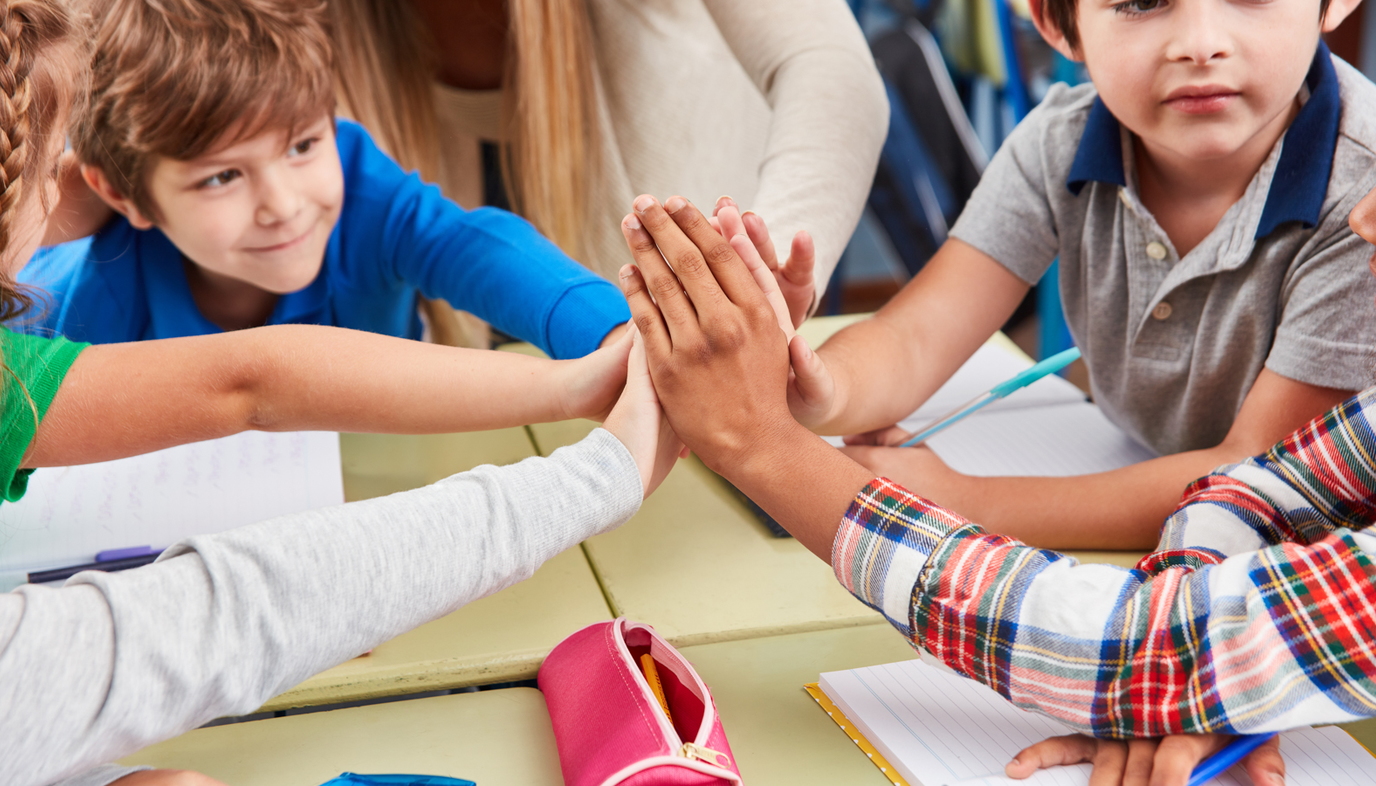
The elementary school years are crucial to a child’s social development—it’s when he or she finds a “best friend,” learns to play well with other kids, and is exposed to other cultures or religions. Working with others and learning to navigate different social situations at school can be challenging. How can you best help your child with social challenges? Here are insights gleaned from leading experts in psychology and child development.
Teach Social Skills at Home
First, take note of how you interact with your child at home. Studies show that when kids learn and practice good emotional skills at home, they have a better chance of developing into effective grownups. Some key social skills that competent adults gained early in life included self-control and the ability to express themselves. You can pass along these skills to your kids at home by allowing them to feel comfortable and supported in expressing themselves freely and reminding them when they need to practice self-control.
Know the Social Challenges at School
When children enter school, they come up against a variety of situations that test social skills learned at home:
Beauty and the Beasts: Children notice “ugly,” “different,” and “goofy” classmates. These differences lead some children to boast, while others may become insecure about their appearance.
Gender issues: It’s usual for young children to feel uncomfortable hanging out with kids of another gender i.e. girls hanging out with boys.
Bullies: How can kids deal with others who push them around or who they see being mean to friends?
Boys’ immaturity: Many studies show that boys by their very nature are more active and typically mature later than girls. Many find it hard to fit into school expectations, and may “act up” or become negative.
How to Help Kids Learn Social Skills
Invite communication: When kids face social challenges, they often need to talk about it, but they’re usually afraid to ask. Make it a safe experience without judgment. Encourage children to converse about issues, ranging from fights with friends to peer pressure to homework. Don’t comment. Listen. Don’t jump to conclusions and interject your point of view without allowing them to provide theirs.
Slow down and stay calm: When parents rush their kids from one topic or activity to another and focus too much on intellect—they may be overlooking opportunities to discover how children are feeling. Ask kids to label their feelings for you… Once children know what their feelings are (i.e., sad, angry), they can work with you to learn ways to manage them.
Help kids be aware of others: Teach your child to understand how someone else feels—because he or she will then have a better chance of interacting positively.
Show empathy: Be a role model for your child by showing how to be considerate of others.
Help young boys adapt: Realize that they tend to be more active and need a place to release their energy—many have trouble sitting in a classroom or other confined space.
Prompts to Help Kids Express Thoughts
Make sure you let it be known you are available if your child wants to talk. Here are suggestions:
“When I see [offer a description of what the child is doing that might be an issue], I think something is wrong. Sometimes it means [say what you think the problem is]. Did I guess right? Or is it something else?"
“You seem [quiet, frustrated…etc.]. Try to tell me some words about how you are really feeling."
Provide Solutions for Bullying
In cases of bullying, research has shown that setting up metal detectors or alarms and doing profiles of potential young attackers are not effective deterrents. Surprisingly, the best way to stop a bully is when a caring, concerned adult reaches out to the potential bully, makes a personal connection, and helps the youth to feel valued as an individual.
Help Kids Deal with Rejection
Although bullying or rejection can happen at any age, boys in the elementary school years can be particularly vulnerable to suffering hits on their self-esteem daily. Teachers and parents need to be aware of what’s going on—and let the boy in trouble know that they understand his feelings and value him.
There are also boys who may be loud and negative. Work with the teachers on helping such boys to understand that loudness itself can be the enemy!
Team Up With Teachers
A teacher in NYC begins her lessons by asking students to list adjectives that portray famous athletes. She then asks them to have an open discussion about the variety of body sizes and shapes in the world. Next, she asks her students to create drawings to show someone coming to the aid of other individuals being ridiculed for their appearance.
In a setting like this, kids actually are learning about social justice—an issue that has existed throughout history. Parents can support educators' efforts to help children handle different views and behaviors, and become better human beings.


